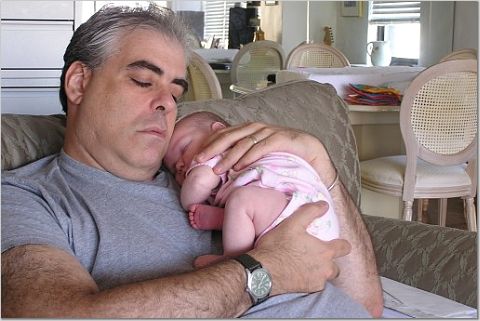All the News, in Fits
Friday, May 27, 2005
I was reading Newsweek’s letter to their readers in this week’s issue, written by Chairman and Editor-in-Chief Richard Smith. (I don’t know why I’m so compelled by this topic; I have nothing to do with the news business.) In the letter, he notes:“We will raise the standards for the use of anonymous sources throughout the magazine. Historically, unnamed sources have helped to break or advance stories of great national importance. But overuse can lead to distrust among readers and carelessness among journalists. As always, the burden of proof should be with the reporters and their editors to show why the promise of anonymity serves the reader. From now on only the editor or managing editor, or other top editors they specifically appoint, will have the authority to sign off on the use of an anonymous source.”
Certainly one cannot take issue with this policy. But it occurs to me that we are now waste deep in a quantum sea change in the way news is gathered and disseminated. There appears to be a risk/reward dynamic in journalism, or more aptly, in reporting; the less risks you take (i.e., the place you draw the line on “editorial integrity”), the less potential reward you will reap (scoops.) In short, the ones who play fast and loose with journalistic standards will get some right and some wrong, but because they swing at more pitches sooner, pretty much all the real news will appear there first (and much of the fake news). The journalism brands with more “editorial credibility”—which is to say, the mainstream media—will now serve the function of confirming and expanding on news, but not breaking it.
If this sounds overly dramatic, remember what Matt Drudge’s editorial standards are, and then remember who broke the Monica Lewinsky story. According to the Pew Internet and American Life Project, 6% of US adults have created a blog—11 million persons, or 1 in 17 persons. Sixteen percent of US adults, or 32 million people, are blog readers; that’s 20% of the newspaper audience and 40% of the talk radio audience. (Also as per Pew.)
Newsweek’s readership is nowhere near 32 million. And too, I am reasonably certain that fewer than one in seventeen Americans writes for a major newsweekly.
Which means that there are rapidly growing and almost limitless appetites (and outlets) for “factal data”—stuff that may or may not be true, and which includes truths, spins, innuendoes, gossip, lies, rumors, and disinformation. All of this will be aired in the blogosphere; ultimately a subset of it will make its way to mainstream news. But inevitably, if mainstream news outlets maintain traditional standards of journalistic integrity, while not every Joe Blow with a laptop and a wireless card does, eventually everything noteworthy will get out first through the less rigorous source.
Indeed, I suspect even old Dick Smith of Newsweek agreed with this assessment, when he also wrote in that same letter:
“While there will always be an instinct to get an exclusive story into the magazine quickly, we will continue to value accuracy above all else. We are committed to holding stories for as long as necessary in order to be confident of the facts. If that puts us at a competitive disadvantage on any particular story, so be it.”
So Newsweek will sit on a story as long as they have to in order to be sure it is right. Even if by the time they run it, the story is yesterday’s news.
I don’t mean to knock Newsweek. Again, I support the stand they are taking. However, we should realize the implications of this articulation of editorial integrity in today’s environment. No longer are the big, familiar news brands the sources from which major stories first emerge. Sure, their resources will allow them to better cover known stories (how many bloggers had news vans and satellite uplinks at the Vatican when the Pope died?) But I think we are in an age where “scoop” and “journalistic integrity” are becoming an either/or.
Labels: The politics
Posted by: --josh-- @ 12:48 PM




Post a Comment
<< Home